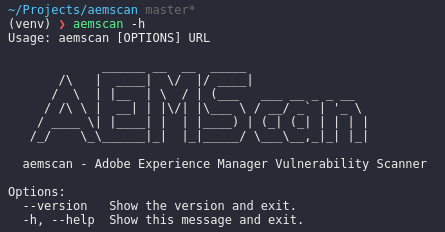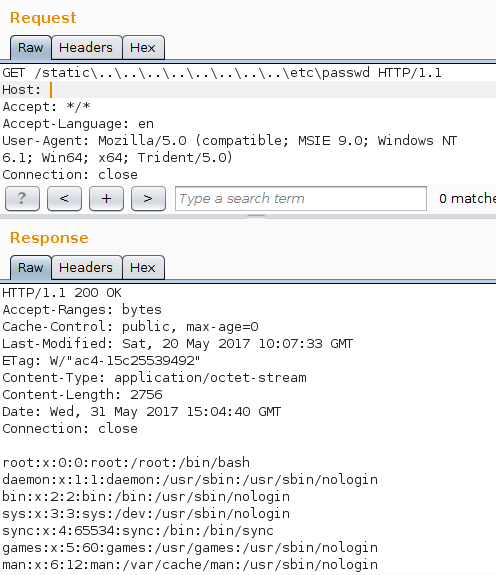It has been quite a while since GraphQL has been introduced by Facebook, lots of tools and frameworks has appeared and are being used in the wild now. In 2017 I made an overview of the technology from the security point of view in the post “Looting GraphQL for Fun and Profit” and some of the predictions turned out to be true. For instance, “resolvers may contain ACL-related flaws“. In this post I would like to show an example of such case in a popular GraphQL backend called graphcool.
(more…)Web3 Security
-
Why you should not use GraphQL schema generators
Posted in Articles
-
PolySwarm Smart Contract Hacking Challenge Writeup
Posted in Writeups
This is a walk through for the smart contract hacking challenge organized by PolySwarm for CODE BLUE conference held in Japan on November 01–02. Although the challenge was supposed to be held on-site for whitelisted addresses only, Ben Schmidt of PolySwarm kindly shared a wallet so that I could participate in the challenge.
(more…) -
Adobe Experience Manager Vulnerability Scanner
Posted in Releases
Adobe Experience Manager is content management system that is based on Apache Sling – a framework for RESTful web-applications based on an extensible content tree. Apache Sling in its turn is basically a REST API for Apache Jackrabbit, which is an implementation of Content Repository API for Java (JCR). The main principle of JCR is that everything is a resource. It means that any object in JCR repository can be retrieved in multiple ways depending on requested selector. E.g. if you make a request to /index.html you will get an HTML page, but if you replace .html with a .json selector you can get metadata of this resource:
{ "jcr:primaryType":"cq:Page", "jcr:createdBy":"transport-user", "jcr:created":"Mon Jun 13 2018 22:09:46 GMT+0000" }AEM installations typically have lots of hidden gems (even password hashes) if selectors are improperly configured. aemscan helps to discover such weaknesses and much more:
- Default credentials bruteforce
- Info leak via default error page
- WebDav support check (WebDav OSGI XXE CVE-2015-1833)
- Version detection
- Useful paths scanner
You can grab the source code from GitHub: https://github.com/Raz0r/aemscan. Pull requests are welcome!
-
Predicting Random Numbers in Ethereum Smart Contracts
Posted in Talks
Slides from my AppSec California 2018 talk “Predicting Random Numbers in Ethereum Smart Contracts”
Detailed blog post: https://blog.positive.com/predicting-random-numbers-in-ethereum-smart-contracts-e5358c6b8620
-
Looting GraphQL Endpoints for Fun and Profit
Posted in Articles
 In one of the previous posts about the state of modern web applications security I mentioned GraphQL – a new technology for building APIs developed by Facebook. GraphQL is rapidly gaining popularity, more and more services switch to this technology, both web and mobile applications. Some of the GraphQL users are: GitHub, Shopify, Pintereset, HackerOne and many more. You can find many posts about GraphQL benefits and advantages over classic REST API on the internet, however there is not so much information about GraphQL security considerations. In this post I would like to elaborate on GraphQL: how it works, what the weak points are, how an attacker can abuse them, and which tools can be used.
In one of the previous posts about the state of modern web applications security I mentioned GraphQL – a new technology for building APIs developed by Facebook. GraphQL is rapidly gaining popularity, more and more services switch to this technology, both web and mobile applications. Some of the GraphQL users are: GitHub, Shopify, Pintereset, HackerOne and many more. You can find many posts about GraphQL benefits and advantages over classic REST API on the internet, however there is not so much information about GraphQL security considerations. In this post I would like to elaborate on GraphQL: how it works, what the weak points are, how an attacker can abuse them, and which tools can be used.
(more…) -
Arbitrary File Reading in Next.js < 2.4.1
Posted in Vulnerabilities
 Next.js is a quite popular (>13k stars on GitHub) framework for server-rendered React applications. It includes a NodeJS server which allows to render HTML pages dynamically. While digging into server’s code, a list of internal routes drew my attention:
Next.js is a quite popular (>13k stars on GitHub) framework for server-rendered React applications. It includes a NodeJS server which allows to render HTML pages dynamically. While digging into server’s code, a list of internal routes drew my attention:defineRoutes() { const routes = { /* ... */ '/_next/:path+': async(req, res, params) => { const p = join(__dirname, '..', 'client', ...(params.path || [])) await this.serveStatic(req, res, p) }, '/static/:path+': async(req, res, params) => { const p = join(this.dir, 'static', ...(params.path || [])) await this.serveStatic(req, res, p) } /* ... */ }As you can see you can pass arbitrary path into serveStatic() function via
/_next/and/static/endpoints:export function serveStatic(req, res, path) { return new Promise((resolve, reject) =>; { send(req, path) .on('directory', () =>; { // We don't allow directories to be read. const err = new Error('No directory access') err.code = 'ENOENT' reject(err) }) .on('error', reject) .pipe(res) .on('finish', resolve) }) }This function just pipes the contents of files into the output without any validation or restrictions. So, we can try to perform a path traversal:
GET /_next/../../../../../../../../../etc/passwd HTTP/1.1And it works! However, NodeJS application servers are usually deployed behind nginx. Due to path normalization in nginx we cannot just use forward slashes and dots, nginx will return a Bad Request error code. Luckily, NodeJS server transforms backslashes into forward slashes, so we can bypass nginx validation.
GET /_next\..\..\..\..\..\..\..\..\..\etc\passwd HTTP/1.1ZEIT, the company which develops Next.js, was very quick to respond and roll out the patch. Be sure to update to the latest version.
-
Database Firewall from Scratch
Posted in Talks
Slides from our talk with Denis Kolegov at PHDays 7 “Database Firewall from Scratch” (+ bonus).
-
PostMessage Security in Chrome Extensions
Posted in Talks
Slides from my talk at OWASP London Meetup on the 30th of March, 2017.
-
Universal (Isomorphic) Web Applications Security
Posted in Articles
Nowadays you do not write things in jQuery. You use node.js, webpack, React, Redux, websockets, babel and a ton of other packages to help you create a basic ToDo web application. With frontend technologies developing rapidly, isomorphic (or to be correct universal) web applications are a big thing now. In a nutshell, it means that you can write the code in JavaScript which can be run both on server and client side with reusable components, validators and shared state. Lovely, isn’t it? As a frontend developer you would say that it definitely is. A security guy would argue since the approach is extremely unsafe for your data.
-
Waf.js: How to Protect Web Applications using JavaScript
Posted in Talks
Latest posts
Categories


